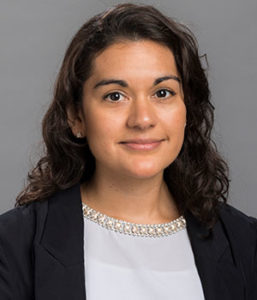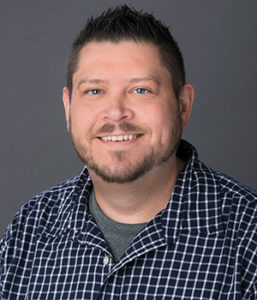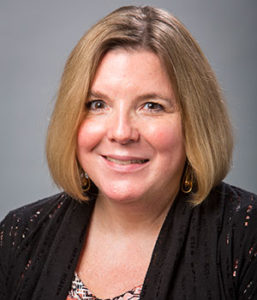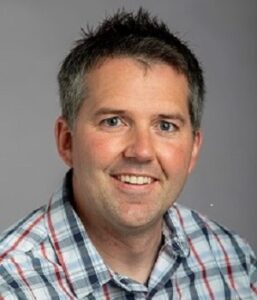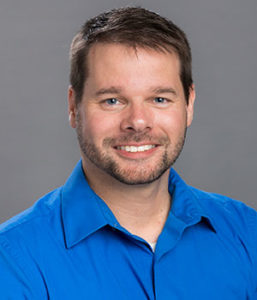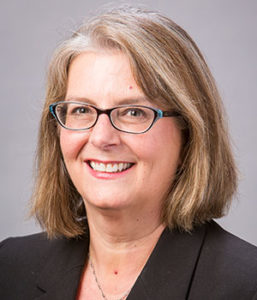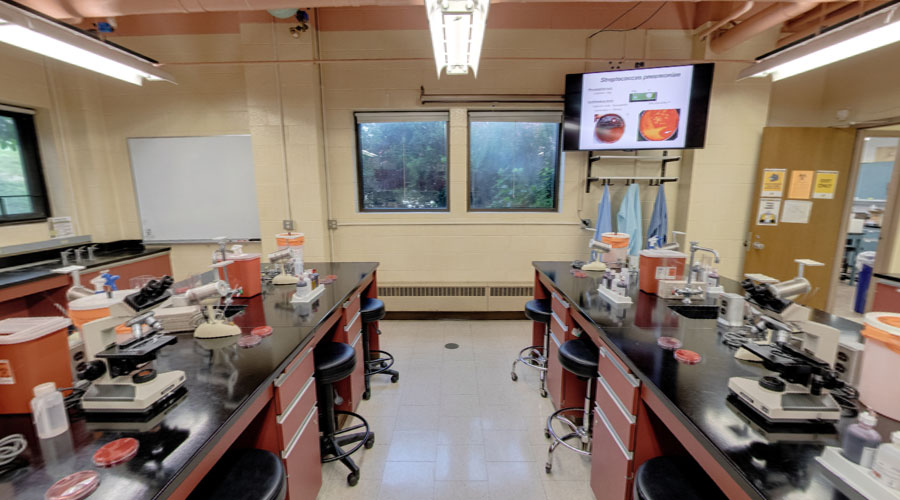Biomedical Sciences: Public Health Microbiology BS
In our public health microbiology degree program, you’ll investigate the fascinating world of organisms too small to be seen with the naked eye. Using a microscope, you’ll study living organisms and infectious agents and how they affect our lives, including those agents that pose a threat to public health.
Public health microbiologists collaborate with other scientists and work in public health labs in almost every industry, from food to veterinary medicine to space research.
Program Type
Major
Program Format
On Campus
Public Health Microbiologist…
As a public health microbiologist, you will prevent and control communicable diseases. You will use a wide variety of laboratory techniques to help identify and characterize microorganisms that directly affect public health.
Public health microbiologists can work in a variety of settings, such as public health, hospital and research laboratories.
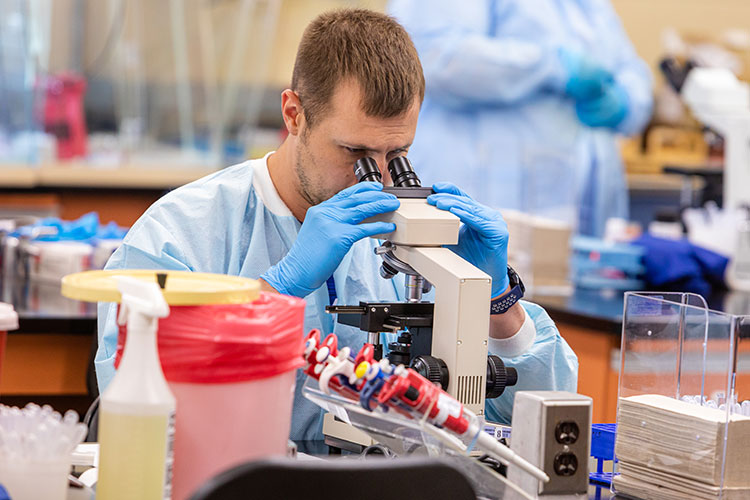
Medical tests are critical to the accurate detection, diagnosis and treatment of diseases, and so are the scientists who analyze and interpret those tests in the lab. If you enjoy science and its practical application, particularly in health care or related research, a microbiology degree could be for you.
With the University of Wisconsin-Milwaukee (UWM) BS Biomedical Sciences: Public Health Microbiology degree, you can be part of a wide variety of continually changing, dynamic professions, all with good long-term career prospects.
- You will be able to recognize the major epidemiologic and clinical features of microbial disease.
- You will gain an understanding of laboratory techniques that can be applied to the study and control of microbial pathogens.
- You will be able to use the principles of epidemiology, microbiology and public health methods in the the detection, surveillance, investigation and control of microbial diseases.
- Our graduates quickly find employment upon graduation.
Employment Outlook
Learn more about career opportunities in laboratory science at laboratorysciencecareers.com.
Earnings
The median annual wage for microbiologists was $75,650 in May 2019. The lowest 10% earned less than $43,500, and the highest 10% earned more than $133,280.
Expected Growth
Employment of microbiologists is projected to grow 3% from 2019 to 2029, about as fast as the average for all occupations. More microbiologists will be needed to contribute to basic research and solve problems of industrial production.
Microbiologists will be needed to research and develop new medicines and treatments, such as vaccines and antibiotics. In addition, microbiologists will be needed to help pharmaceutical and biotechnology companies develop drugs that are produced with the aid of microorganisms.
Source: Bureau of Labor Statistics, U.S. Department of Labor, Occupational Outlook Handbook, Microbiologists.
Successful Alumni
The School of Biomedical Sciences & Health Care Administration has many successful alumni. These alumni have taken their degrees and have excelled in their careers.
Visit our Alumni page and be inspired by where a health sciences degree can take you.
Related Programs
Admission Criteria
You will receive eight weeks of professional clinical training during your senior year at the City of Milwaukee Health Department Laboratory.
Entry into the public health microbiology degree program is competitive and dependent upon:
- Completion of a minimum of 90 semester hours of coursework, including all required courses and UWM General Education Requirements (GER).
- An overall minimum UWM grade point average (GPA) of 2.5.
- A minimum GPA of 2.5 in the specified science courses:
- Chemistry: 102, 104, 221, 341, 342, 501
- Biological Sciences: 202, 203, 325, 383
- BMS: 301-305, 427, 428
- A minimum grade of “C” in all junior-level science courses.
PLEASE NOTE: The program will attempt to place all students who meet the above criteria, but cannot guarantee that every student will be placed in a clinical rotation. The number of students placed in clinical rotations depends on the number of clinical positions available. Students with the highest science GPA will be given first priority. You will be contacted regarding your eligibility for clinical placement prior to the start of the spring semester of your junior year.
In the event that more clinical positions are available than students requesting placement, a student with a GPA between 2.0 and 2.5 may be conditionally accepted for a clinical rotation. Each student will be reviewed on an individual basis and must have approval from the Department of Biomedical Sciences faculty and the clinical education coordinator(s).
To remain eligible to continue in the professional training, you must earn a grade of ‘C’ or better in all senior-level courses. You must be prepared for full-time study (40 hours per week) that could also require additional study time at night and on weekends.
Application Process
You need to complete the following steps in the application process:
- Complete the application (PDF) and return it by Dec. 1 of your junior year to:
Department of Biomedical Sciences Program Office
College of Health Sciences
University of Wisconsin-Milwaukee
Enderis Hall, Room 411
Milwaukee, WI 53201 - Submit an autobiography, along with your application, describing yourself and your accomplishments. Text should be one-page, double-spaced on 8.5 x 11” paper and include:
- Your work experience, including any in health care
- Your reasons for choosing the Clinical Laboratory Sciences as your profession
- Your future goals
Review Of Applicants
The College of Health Sciences Office of Student Affairs, together with the Department of Biomedical Sciences undergraduate program director, will review all public health microbiology degree application files in January to verify that the admission criteria have been satisfied and the files are complete.
Letters of acceptance or rejection will be sent to all applicants prior to the second semester.
*You must achieve a minimum cumulative GPA of 2.500 in these required science courses for the public health microbiology degree.
General Education Requirements (GERs)
Learn more about UWM’s General Education Requirements
| COURSE | GER | Credits |
|---|---|---|
| Social Science Fulfilled by major prerequisites | GER-SS | 0 |
| Cultural Diversity Fulfilled by major prerequisites | GER-CD | 0 |
| Arts Select course from the approved GER Arts list | GER-A | 3 |
| Humanities Select course from the approved GER Humanities list | GER-HU | 6 |
| Total Credits: | 9 |
Freshman Year
Fall Semester
| Course | Credits |
|---|---|
| BIO SCI 202: Anatomy & Physiology I* | 4 |
| CHEM 102: General Chemistry* | 5 |
| HS 101: Intro to Health & Disease | 2 |
| HS 222: Language of Medicine | 3 |
| Total Credits: | 14 |
Spring Semester
| Course | Credits |
|---|---|
| BIO SCI 203: Anatomy & Physiology II* | 4 |
| CHEM 104: General Chemistry & Qualitative Analysis* | 5 |
| HS 224: Computational Tools for Healthcare Professionals | 3 |
| GER Elective – Arts | 3 |
| Total Credits: | 15 |
Sophomore Year
Fall Semester
| Course | Credits |
|---|---|
| BIO SCI 150: Foundations of Biological Science I* | 4 |
| BMS 205: Intro to Diagnostic Medicine | 3 |
| BMS 301 & 302 & 303: Human Pathophysiology* | 3 |
| CHEM 341: Organic Chemistry Lecture* | 3 |
| CHEM 342: Organic Chemistry Lab* | 2 |
| Total Credits: | 15 |
Spring Semester
| Course | Credits |
|---|---|
| BIO SCI 325: Genetics* | 4 |
| BMS 201: Sexually Transmitted Diseases | 3 |
| BMS 245: Client Diversity in Health Science (GER-SS/GER-CD) | 3 |
| BMS 304 & 305: Human Pathophysiology* | 2 |
| KIN 270: Statistics in the Health Professions (GER-QLB) | 3 |
| Total Credits: | 15 |
Junior Year
Fall Semester
| Course | Credits |
|---|---|
| BIO SCI 383: General Microbiology* | 4 |
| BMS 427: Clinical Immunology* | 3 |
| BMS 428: Clinical Immunology Lab* | 1 |
| CHEM 501: Biochemistry* | 3 |
| HCA 212: Drugs Used & Abused (GER-SS) | 3 |
| Total Credits: | 14 |
Spring Semester
| Course | Credits |
|---|---|
| BMS 534: Medical Microbiology | 3 |
| BMS 535: Medical Microbiology Lab | 2 |
| BMS 560: Molecular & Genetic Diagnostics | 2 |
| BMS 561: Molecular Diagnostics Lab | 1 |
| HCA 307: Epidemiology for Health Sciences | 3 |
| HS 311: Law for Health Care Consumers | 3 |
| HCA 249: Writing for Professional Development in Health Administration (GER-OWCB) | 3 |
| Total Credits: | 17 |
Senior Year
Summer Semester
| Course | Credits |
|---|---|
| BMS 536: Applied Clinical Microbiology | 2 |
| BMS 537: Medical Parasitology & Mycology | 2 |
| Electives | 4 |
| Total Credits: | 8 |
Spring Semester
| Course | Credits |
|---|---|
| BMS 539: Public Health Microbiology Lecture | 2 |
| BMS 540: Public Health Microbiology Lab | 2 |
| BMS 555: Toxicology & Therapeutic Drug Monitoring | 1 |
| BMS 599: Independent Study Enroll in single credit sections taught by Cindy Brown and Brad De Pons | 2 |
| GER Elective – Humanities | 3 |
| Electives | 3 |
| Total Credits: | 13 |
Fall Semester
| Course | Credits |
|---|---|
| BMS 531: Advanced Lectures in the Clinical Laboratory Sciences | 2 |
| BMS 538: Advanced Clinical Microbiology Practicum | 3 |
| BMS 548: Clinical Laboratory Practice | 4 |
| BMS 549: Professional Development in Clinical Laboratory Sciences | 1 |
| GER Elective – Humanities | 3 |
| Total Credits: | 13 |
To schedule an advising appointment, call 414-229-5047 or visit Cunningham Hall, Room 135.
You can also see the name of your advisor and contact them directly by accessing your student center in PAWS.
When should I meet with my advisor?
You are encouraged to meet with your advisor at least once per semester to ensure timely progress to graduation.
- Enrolling for spring semester?
Schedule an appointment with your advisor in October or November. - Enrolling for fall semester?
Schedule an appointment with your advisor in March or April.
You are also welcome to schedule an appointment with your advisor at any time to discuss academic challenges, career opportunities or any other questions.
How can my advisor help me?
The College of Health Sciences boasts professional academic advisors who understand the challenges of balancing academics, work, family and the social aspects of college life. Advisors partner with you to:
- Explore your academic and career interests
- Plan the sequence of your courses
- Prepare for course enrollment
- Access tutoring and other academic support
- Identify opportunities for campus involvement
- Connect you to campus resources
- Plan for graduation
- Clinical Associate Professor, Biomedical Sciences
- sawan@uwm.edu
- 414-251-9423
- Enderis Hall 479
- Clinical Assistant Professor, Biomedical Sciences Undergraduate Laboratory Programs Clinical Education Coordinator, Biomedical Sciences
- bkdepons@uwm.edu
- 414-251-5861
- Enderis Hall B92
- Head of School, School of Biomedical Sciences & Health Care Administration
- Associate Dean for Academic Affairs
- Associate Professor, Biomedical Sciences
- dollj@uwm.edu
- 414-229-4840
- Enderis Hall 899
- Clinical Associate Professor, Biomedical Sciences
- houf@uwm.edu
- 414-251-7123
- Enderis Hall 465
- Clinical Associate Professor, Biomedical Sciences Undergraduate Laboratory Programs Director, Biomedical Sciences
- Associate Professor, Executive Committee Chair, Biomedical Sciences, (Biomedical Sciences and Diagnostic Medical Imaging Programs)
- nardelld@uwm.edu
- 414-251-9074
- Enderis Hall 493
- Clinical Professor, Director of Academic Initiatives and Planning, Biomedical Sciences, Office of the Dean
- sstalews@uwm.edu
- 414-229-5992
- Enderis Hall 819

